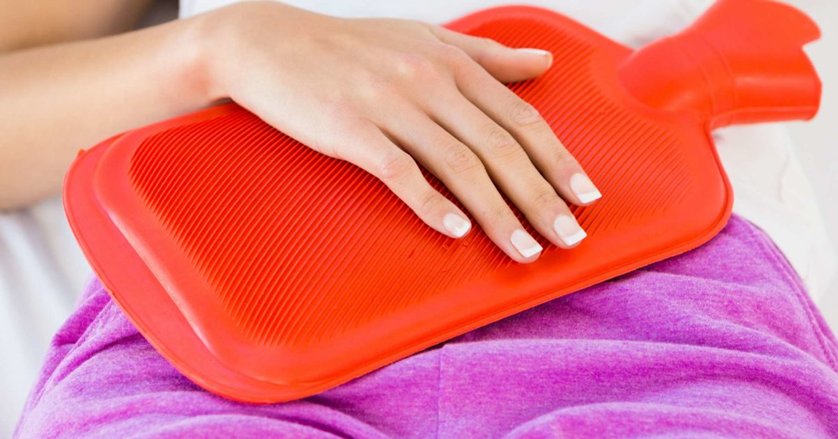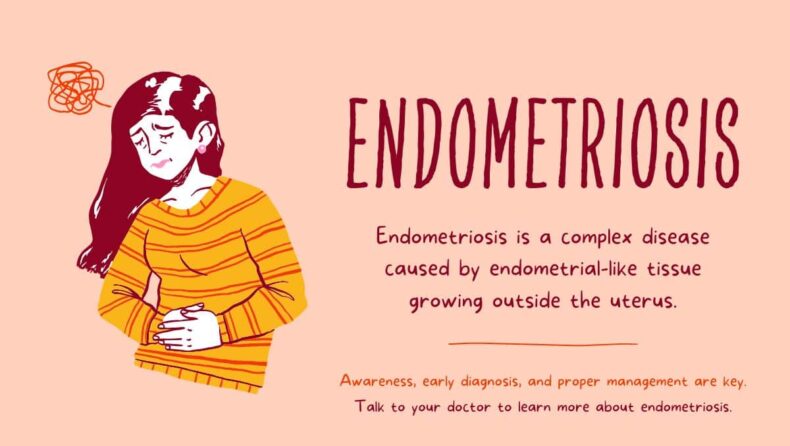Table of Contents
Millions of women worldwide suffer from endometriosis, a chronic and incapacitating condition. It occurs when tissue similar to the lining of the uterus grows outside of the uterus, causing inflammation, pain, and discomfort. The symptoms of endometriosis can be difficult to manage, and many women struggle to find relief. However, there are several self-care tips that can help women manage their symptoms and improve their overall well-being. In this article, we will discuss eight self-care tips that women suffering from endometriosis need to know.
1. Practice Good Sleep Hygiene
Getting enough restorative sleep is crucial for managing the symptoms of endometriosis. It’s important to establish good sleep hygiene by creating a bedtime routine that promotes relaxation and rest. Some helpful tips include avoiding caffeine and alcohol before bedtime, keeping the bedroom cool and dark, and avoiding electronic devices for at least an hour before bed.
2. Exercise Regularly
Exercise can help reduce inflammation and improve mood, making it an excellent self-care practice for women with endometriosis. It’s important to choose low-impact exercises that won’t exacerbate symptoms, such as yoga, Pilates, or walking. Regular exercise can also help regulate the menstrual cycle and reduce the severity of menstrual cramps.

3. Eat a Healthy Diet
A healthy diet is essential for managing endometriosis symptoms. Foods that are high in anti-inflammatory nutrients, such as omega-3 fatty acids, vitamin D, and fiber, can help reduce inflammation and alleviate pain. Some examples of anti-inflammatory foods include fatty fish, leafy greens, nuts and seeds, and whole grains.
4. Manage Stress for self-care
Stress can exacerbate the symptoms of endometriosis, so it’s important to develop effective stress management techniques. Some helpful strategies include meditation, deep breathing exercises, and journaling. It’s also important to prioritize self-care activities, such as taking a relaxing bath or spending time in nature.
5. Use Heat Therapy
Heat therapy, such as a heating pad or hot water bottle, can be an effective way to alleviate pelvic pain and menstrual cramps. Increasing blood flow and reducing muscle tension can be achieved by applying heat to the affected area. It’s important to use heat therapy safely and avoid applying heat for extended periods to prevent burns or skin damage.

6. Get Support
Endometriosis can be a challenging and isolating condition, but it’s important to remember that you’re not alone. Connecting with others who are going through similar experiences can be incredibly helpful. There are many online support groups and forums where women can share their stories and receive support and advice.
7. Practice Mindfulness
Mindfulness practices, such as meditation or yoga, can help women with endometriosis manage their symptoms and improve their overall well-being. Mindfulness can help reduce stress and anxiety, promote relaxation, and increase self-awareness. It’s important to find a mindfulness practice that works for you and incorporate it into your daily routine.

8. Advocate for Yourself
Living with endometriosis can be challenging, and it’s important to advocate for yourself to receive the care and support you need. This may involve seeking out a specialist who has experience treating endometriosis, asking for accommodations at work or school, or advocating for yourself during medical appointments. It’s important to remember that you are your own best advocate and to be persistent in seeking the care and support you need.
In conclusion, endometriosis is a challenging condition that can have a significant impact on a woman’s quality of life. However, practicing self-care can help women manage their symptoms and improve their overall well-being. By prioritizing sleep, exercise, a healthy diet, stress management, heat therapy, support, mindfulness, and advocacy, women with endometriosis can take control.













